Avocado Oil: Unleashing Nutritional Value and Health Benefits
Comparing avocado oil to olive oil, this article explores its health benefits, nutrient content, and effectiveness for skin care.
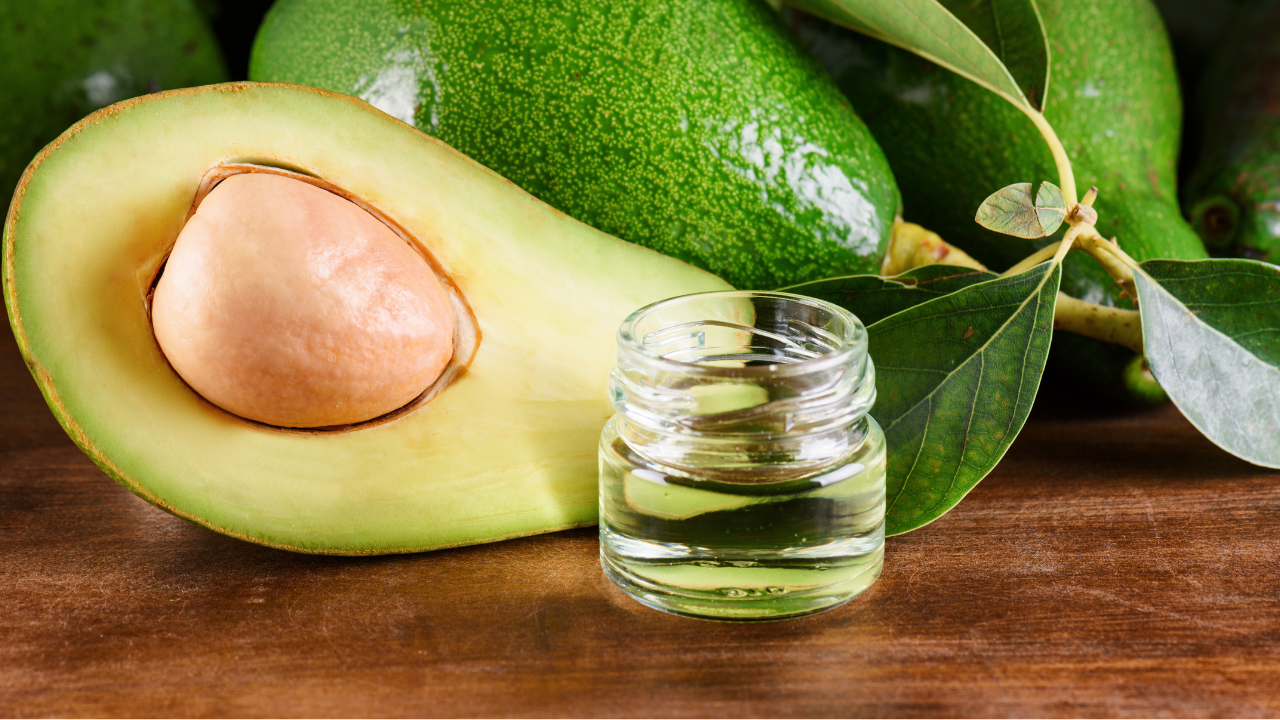
Among the many healthy oils on the market, avocado oil has gained a lot of attention due to its numerous health benefits. In this article, we'll discuss the differences between avocado oil and olive oil, the benefits of using avocado oil for skin care, the nutrient content of avocado oil, whether cooking with avocado oil destroys nutrients, whether avocado oil is the healthiest oil and the top avocado oil brands on the market.
Introduction
Importance of Choosing Healthy Oils
Choosing the right type of oil is a crucial aspect of healthy eating. Oils play an essential role in our diet, providing us with important nutrients and healthy fats that help to nourish our bodies ✅.
However, not all oils are created equal.
Some oils, such as vegetable oil, are high in unhealthy fats and can increase the risk of chronic diseases like heart disease and diabetes.
Choosing healthy oils, on the other hand, can help to lower your risk of these diseases and promote overall health and well-being ✅ ✅✅.
Overview of Avocado Oil and its Health Benefits
One healthy oil that has gained a lot of attention in recent years is avocado oil.
Made from the fruit of avocado, this oil is packed with beneficial nutrients and healthy fats that can help to improve your health in a variety of ways.
✔️Help lower cholesterol levels ✅✅
✔️Protect the body from infection ✅✅
✔️Reduce inflammation in the body ✅
✔️Promote healthy skin and hair ✅
Avocado Oil vs. Olive Oil
Nutritional Content of Avocado Oil and Olive Oil
One major difference is in their nutritional content.
Compared to olive oil, avocado oil has a higher percentage of saturated fatty acids at 16.4%, with palmitic acid being the most prominent at 15.7%. On the other hand, it has a lower percentage of monounsaturated fatty acids at 67.8%, with oleic acid being the most prevalent at 60.3% ✅.
Additionally, avocado oil has a higher percentage of polyunsaturated fatty acids at 15.2%, with linoleic acid being the most significant at 13.7% ✅.
Avocado oil was found to have higher ratios of PUFA/SFA and omega-6/omega-3 compared to olive oil, as demonstrated by Berasategi et al., ✅.
Compared to olive oil, avocado oil contains more phytosterols (ranging from 3.3 g to 4.5 mg/g of oil) that can reduce cholesterol levels and enhance heart health. The predominant phytosterol in olive oil was β-sitosterol, while sitostanol, cycloartenol, cycloeucalenol, and D7-avenasterol were also present ✅.
Avocado oil contains many sterols, with 4-desmethyl-sterols being the most common and making up 80% of all sterols. This high proportion remains even when the oil is exposed to high temperatures.
Benefits of Using Avocado Oil and Olive Oil
Another advantage of using avocado oil and olive oil is its high smoke point.
The smoke point of avocado oil was 1810C ✅ which is similar to that of olive oil ✅.
This means that avocado oil can be heated to higher temperatures without breaking down and producing harmful compounds.
This makes it a great choice for cooking methods like frying and roasting, where high temperatures are required.
In addition, avocado oil has a mild, neutral flavor that won't overpower other ingredients in your dishes.
Different Ways to Use Avocado Oil and Olive Oil in Cooking
Both avocado oil and olive oil can be used in a variety of ways in cooking.
Olive oil is a classic choice for dressings, dips, and marinades, while avocado oil is great for high-heat cooking methods like sautéing, frying, and roasting. It's also a popular choice for making homemade mayonnaise or aioli, thanks to its neutral flavor and rich texture.
Ultimately, the best oil to use will depend on the specific recipe and cooking method you're using, so it's worth experimenting with different oils to find the ones that work best for you.
Avocado Oil for Skin
Benefits of Using Avocado Oil on the Skin
Avocado oil is not only good for your insides but also has many benefits for your skin.
The pulp of avocados contains carotenoids which have been shown to safeguard the skin against oxidation and inflammation caused by ultraviolet radiation ✅.
The oil is rich in fatty acids, including oleic acid and linoleic acid, which can help moisturize and nourish the skin ✅✅.
It also contains antioxidants like vitamin E and beta-carotene ✅, which can help to protect the skin from damage caused by environmental stressors like pollution and UV radiation ✅.
Avocado Oil and Olive Oil for Skin Care
Avocado oil is richer in fatty acids and antioxidants than olive oil, making it a more nourishing and protective choice for the skin ✅. Olive oil, on the other hand, is a good source of squalene, a natural emollient that can help to soften and smooth the skin ✅.
Ultimately, the best oil to use on your skin will depend on your individual needs and preferences.
Different Brands of Avocado Oil for Skin Care
There are several brands of avocado oil that are specifically marketed for skin care. Some of the most popular include Majestic Pure, NOW Solutions, La Tourangelle, and Maple Holistic.
These brands offer a range of avocado oil products, from pure oils to moisturizers and other skincare products that contain avocado oil as an ingredient.
It's important to choose a high-quality, pure avocado oil that is free from additives or synthetic fragrances, especially if you plan to use it on your skin.
Life-Flo🌟
Skin and hair care
🍀Climate Pledge Friendly
♻️ Combact By Design

Now Solutions🌟
Carrier oil for essential oils
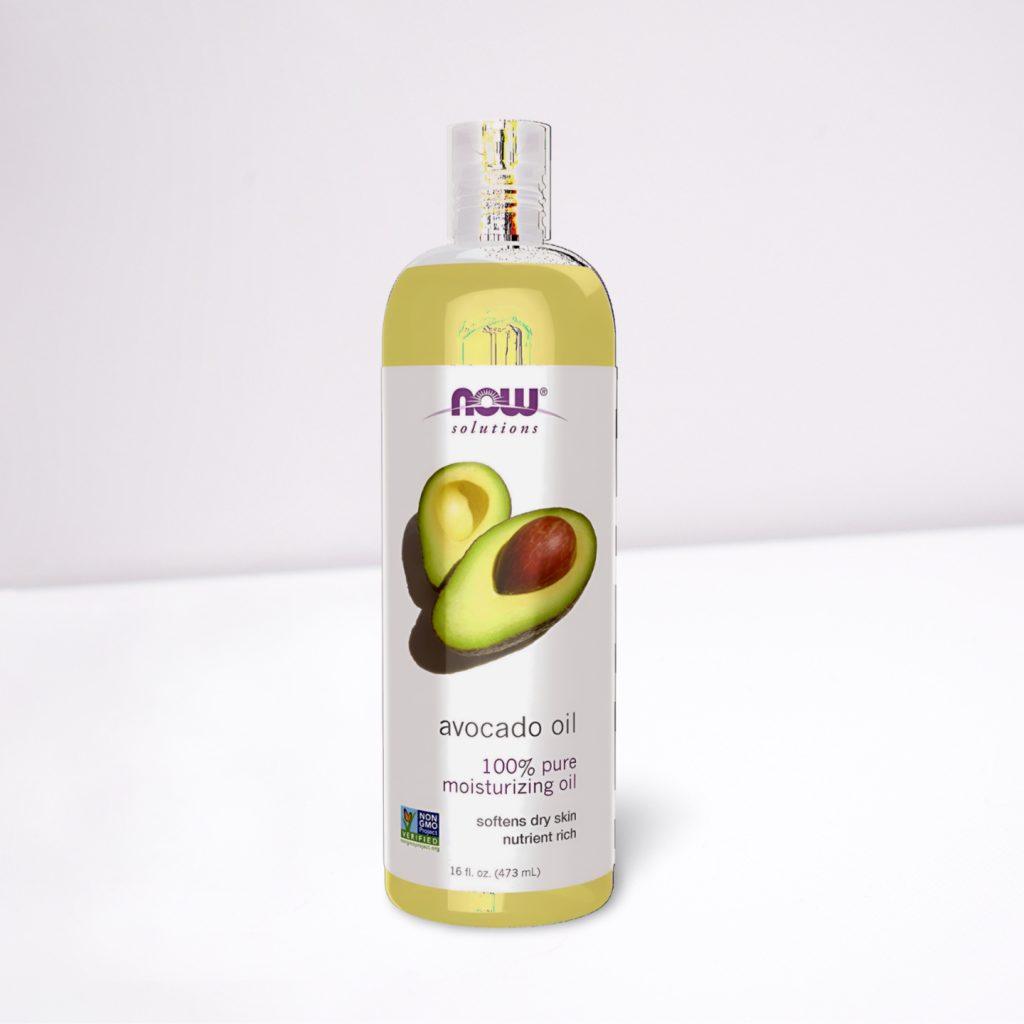
La Tourangelle🌟
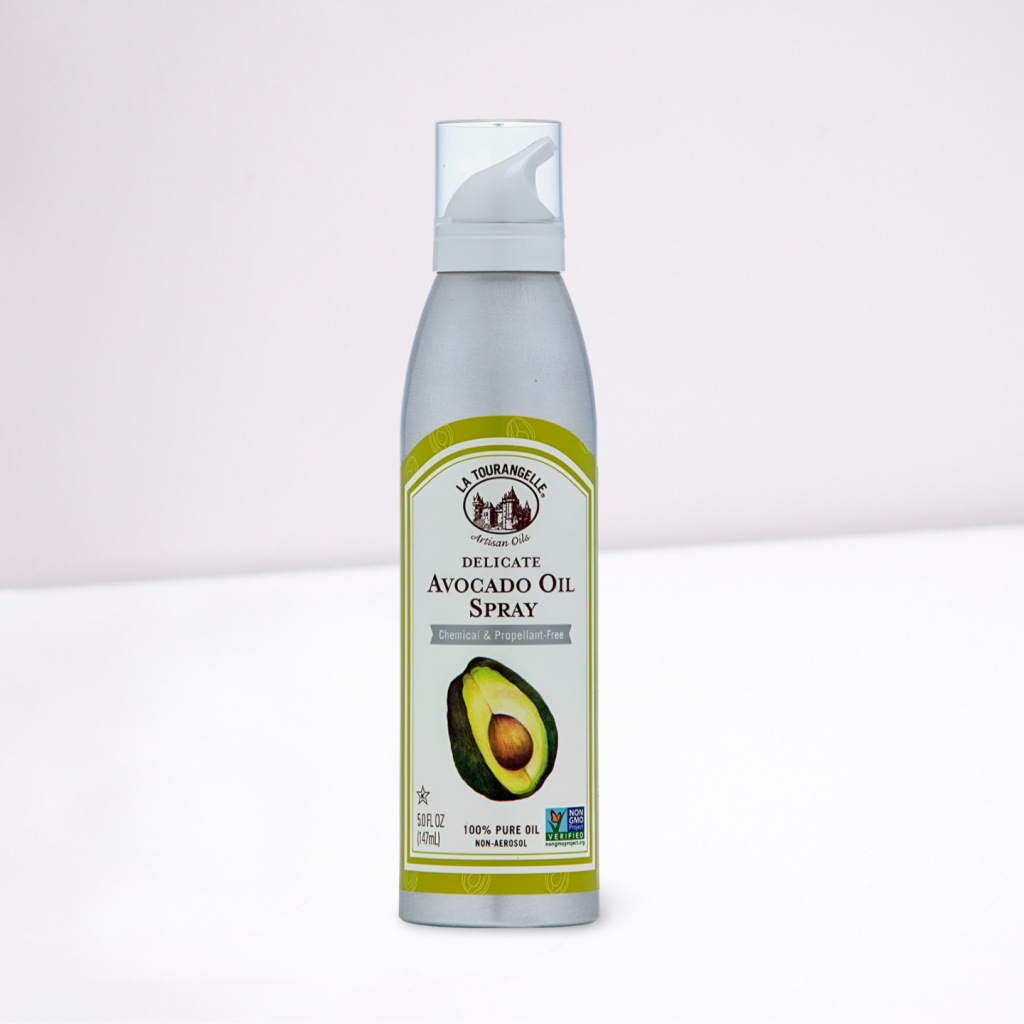
Maple Holistic🌟
Hair care
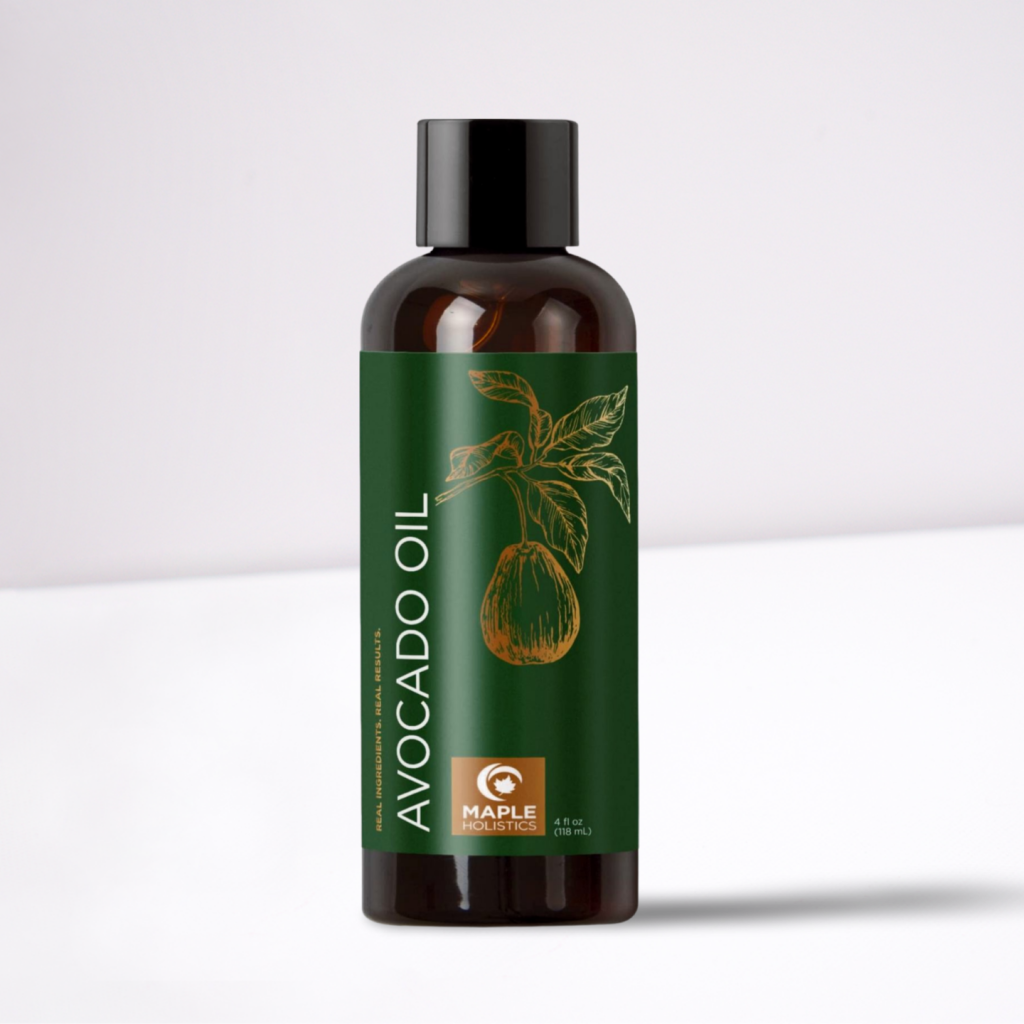
Majestic Pure🌟
Versatility
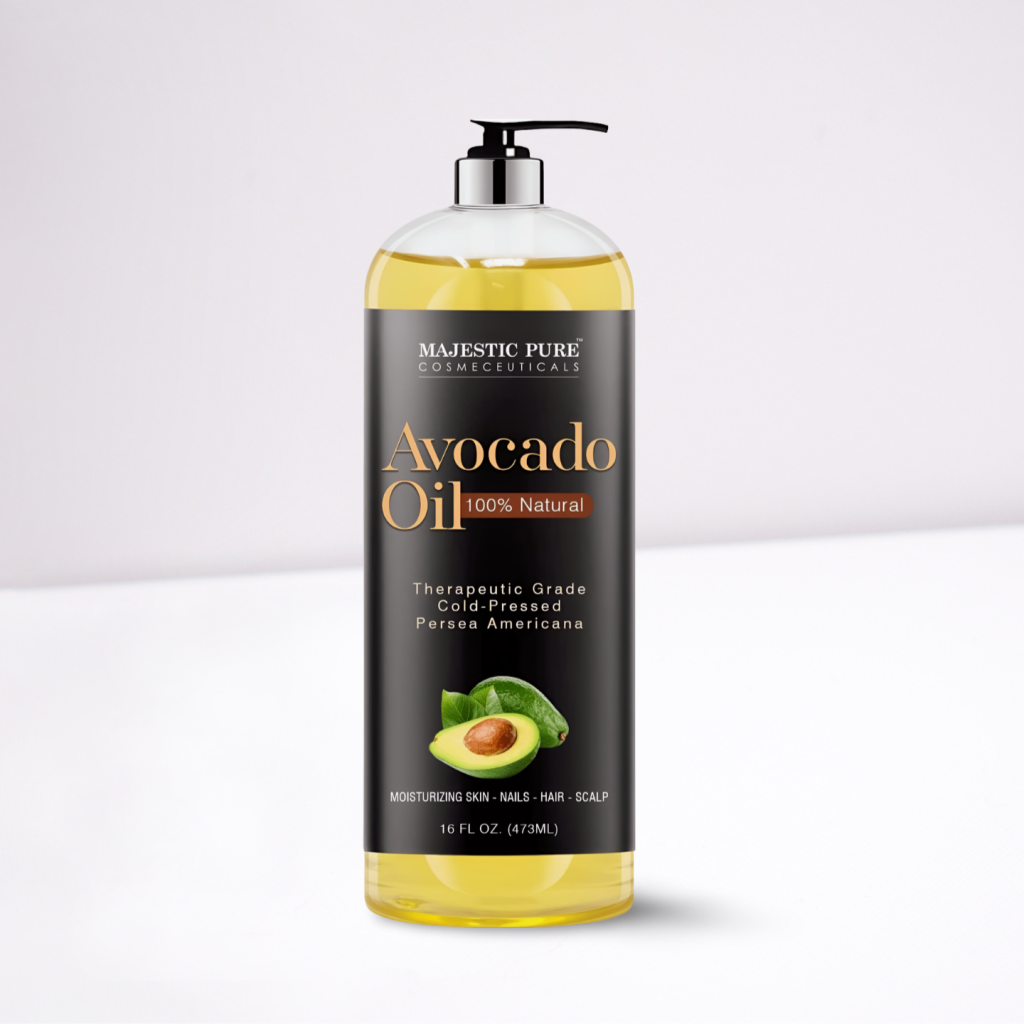
Nutrient Content of Avocado Oil
Nutrients Found in Avocado Oil
Avocado oil is a rich source of several important nutrients, including vitamin E, vitamin K, potassium, and various antioxidants. Vitamin E is an essential nutrient that helps to protect the body's cells from damage, while vitamin K plays a role in blood clotting and bone health ✅✅.
In 30 grams and half of a fruit, avocados provide approximately 152 mg and 345 mg of potassium, respectively ✅.
Potassium is an important mineral that helps to regulate blood pressure and keep the heart healthy.
Antioxidants like beta-carotene and lutein are beneficial for protecting the body's cells from damage caused by free radicals ✅✅.
Whether Cooking with Avocado Oil Destroys Nutrients
While some nutrients, such as vitamin E, can be sensitive to heat, studies have shown that avocado oil retains most of its nutrients even when heated at high temperatures ✅ ✅. This is because avocado oil is relatively stable and has a high smoke point, which means that it can withstand high heat without breaking down or producing harmful compounds.
Omega-3 Content in Avocado Oil to Other Oils
Omega-3 fatty acids are important for heart health and brain function ✅✅ and are typically found in fish and seafood.
While avocado oil is not a significant source of Omega-3s, it does contain a moderate amount of alpha-linolenic acid (ALA) ✅, which is a type of Omega-3 fatty acid that can be converted to EPA and DHA in the body.
The omega-6/omega-3 ratio in avocado oil was found to be higher than that in olive oil ✅.
Compared to other oils, such as flaxseed oil and fish oil, avocado oil is not as high in Omega-3s, but can still be a healthy addition to the diet ✅.
Is Avocado Oil the Healthiest Oil?
Avocado Oil to Other Healthy Oils such as Coconut Oil and Flaxseed Oil
Avocado oil is often touted as one of the healthiest oils available due to its high nutrient content and beneficial fatty acid profile. However, there are other healthy oils that also offer a range of health benefits.
Coconut oil, for example, is a rich source of medium-chain triglycerides (MCTs) which can provide a quick source of energy for the body ✅.
Flaxseed oil, on the other hand, is a good source of Omega-3 fatty acids which can help to reduce inflammation and improve heart health ✅.
Top Avocado Oil Brands
Chosen Foods🌟
Non-GMO and expeller-pressed
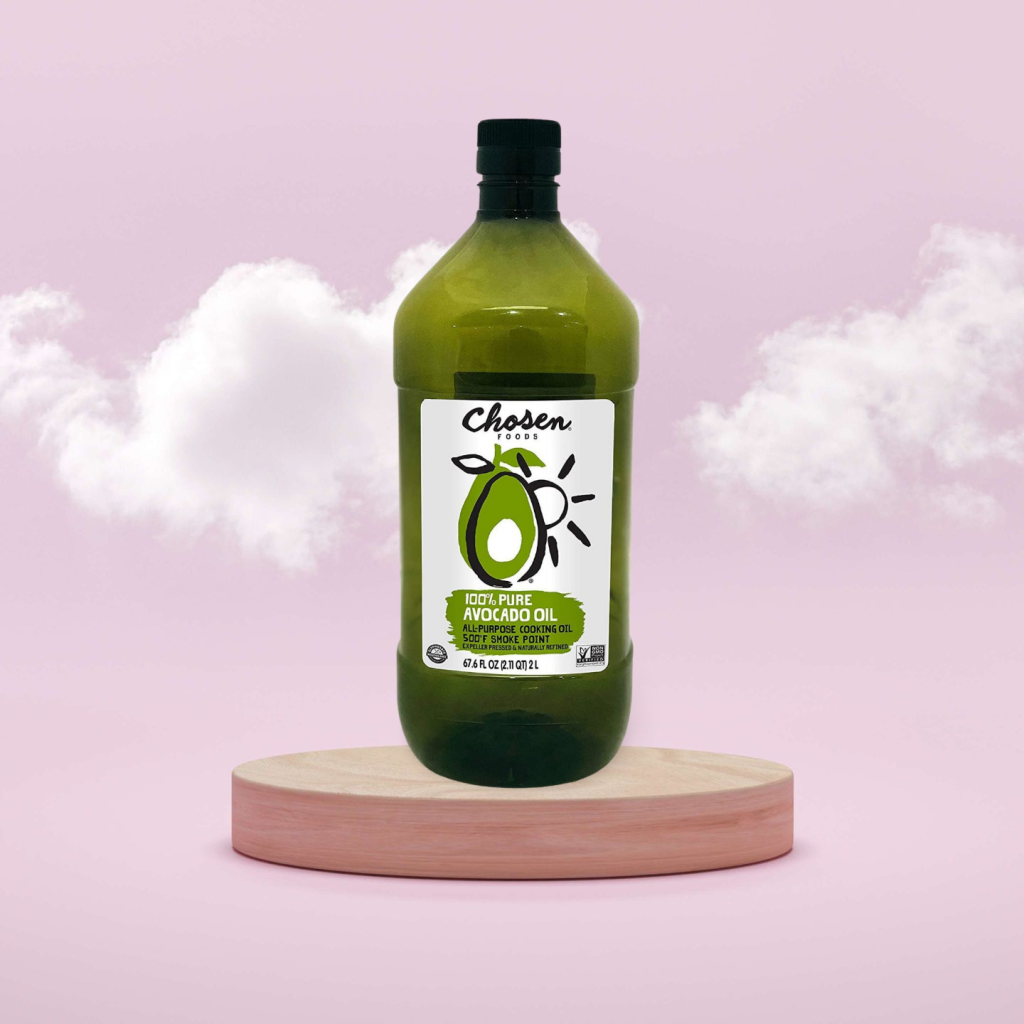
La Tourangelle🌟
High-heat cooking
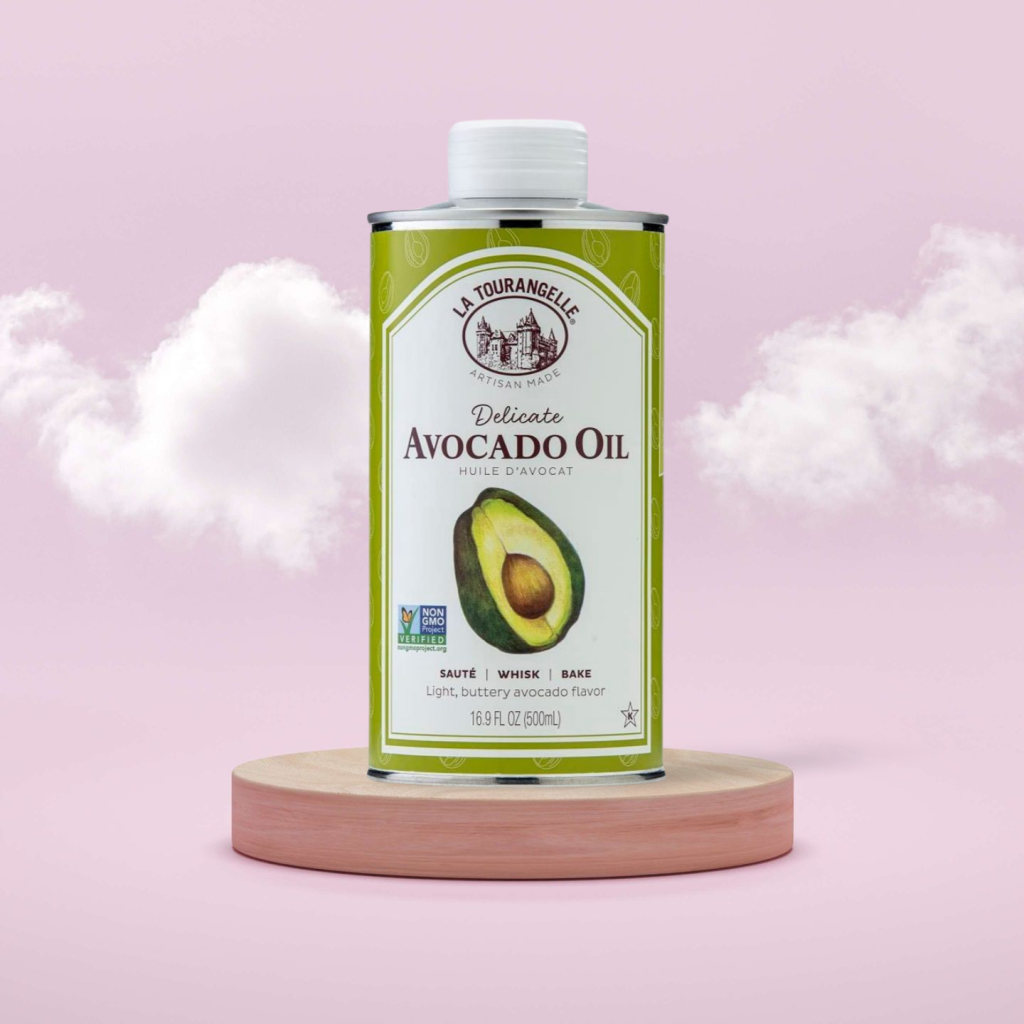
Spectrum Naturals🌟
High smoke point for cooking
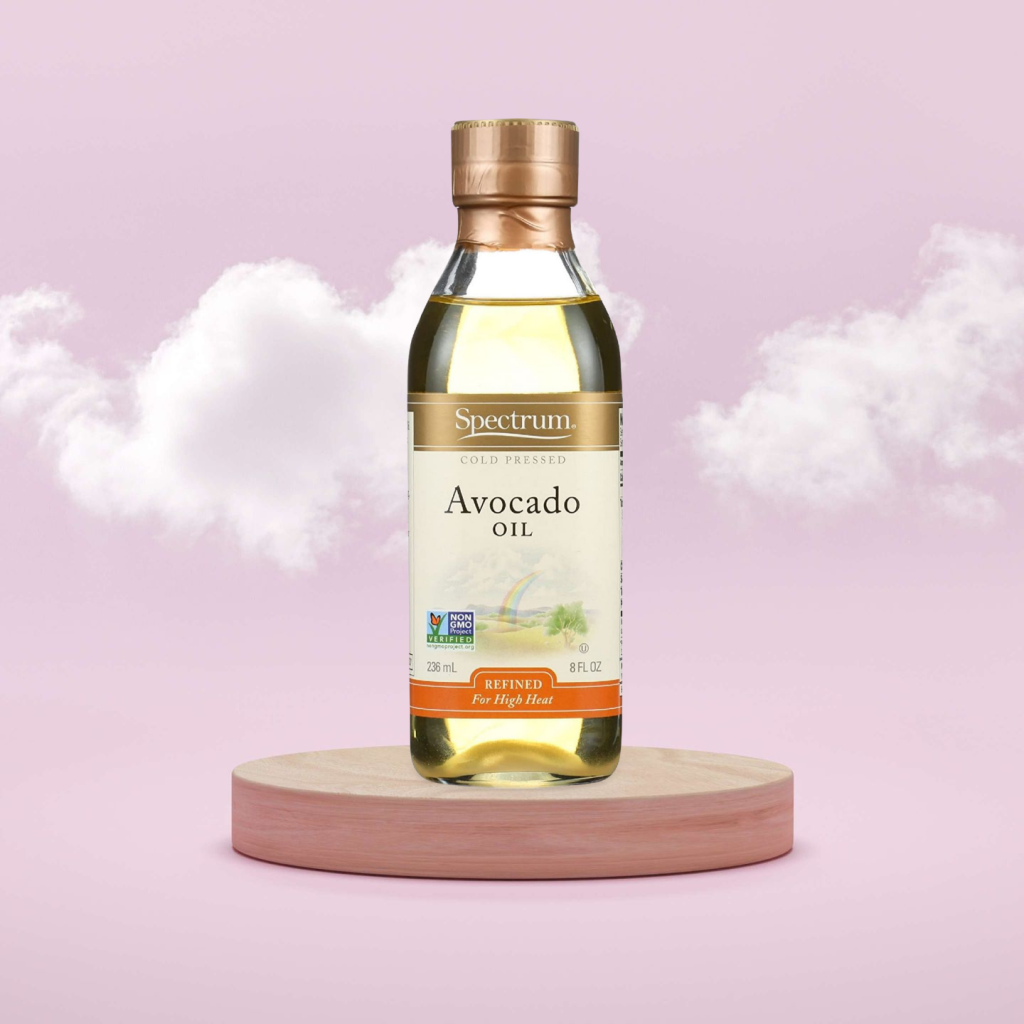
Baja Precious🌟
Single-origin and traceable
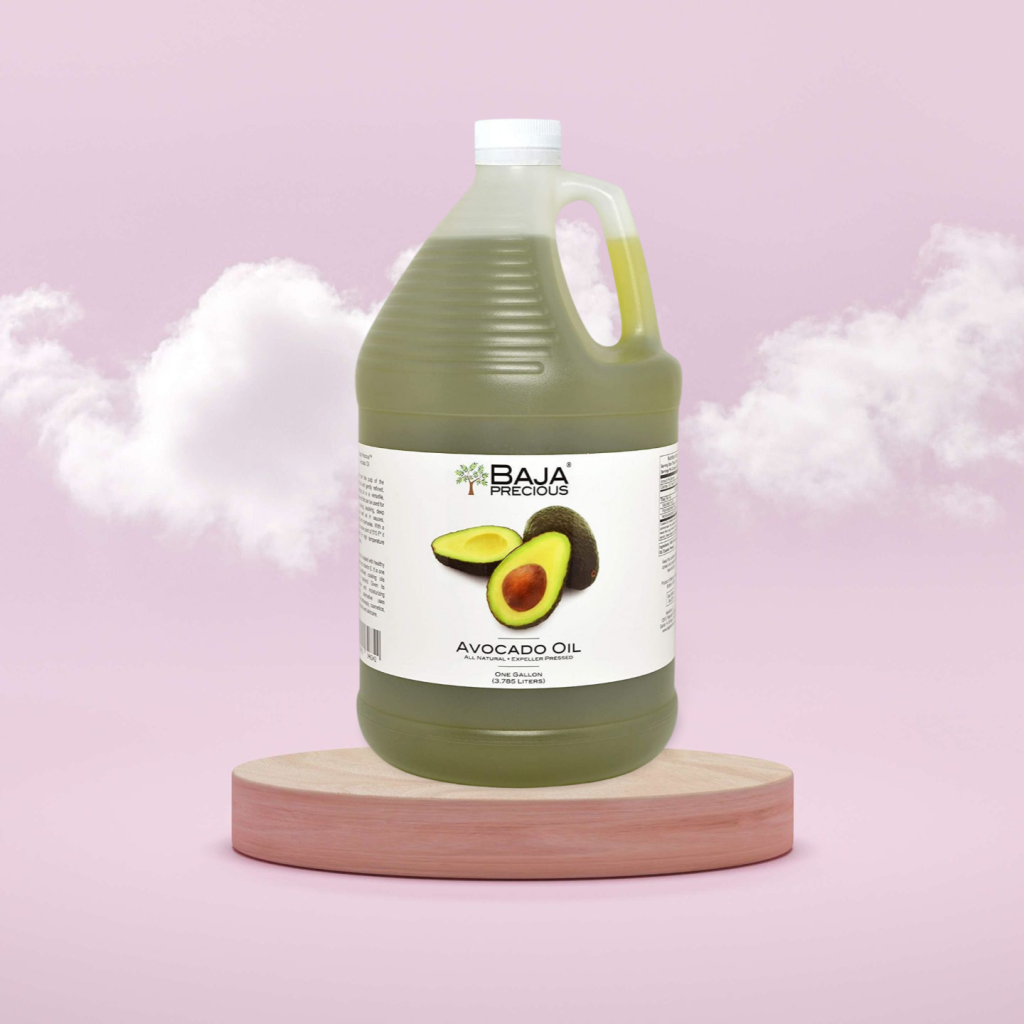
Kevala🌟
Bulk availability
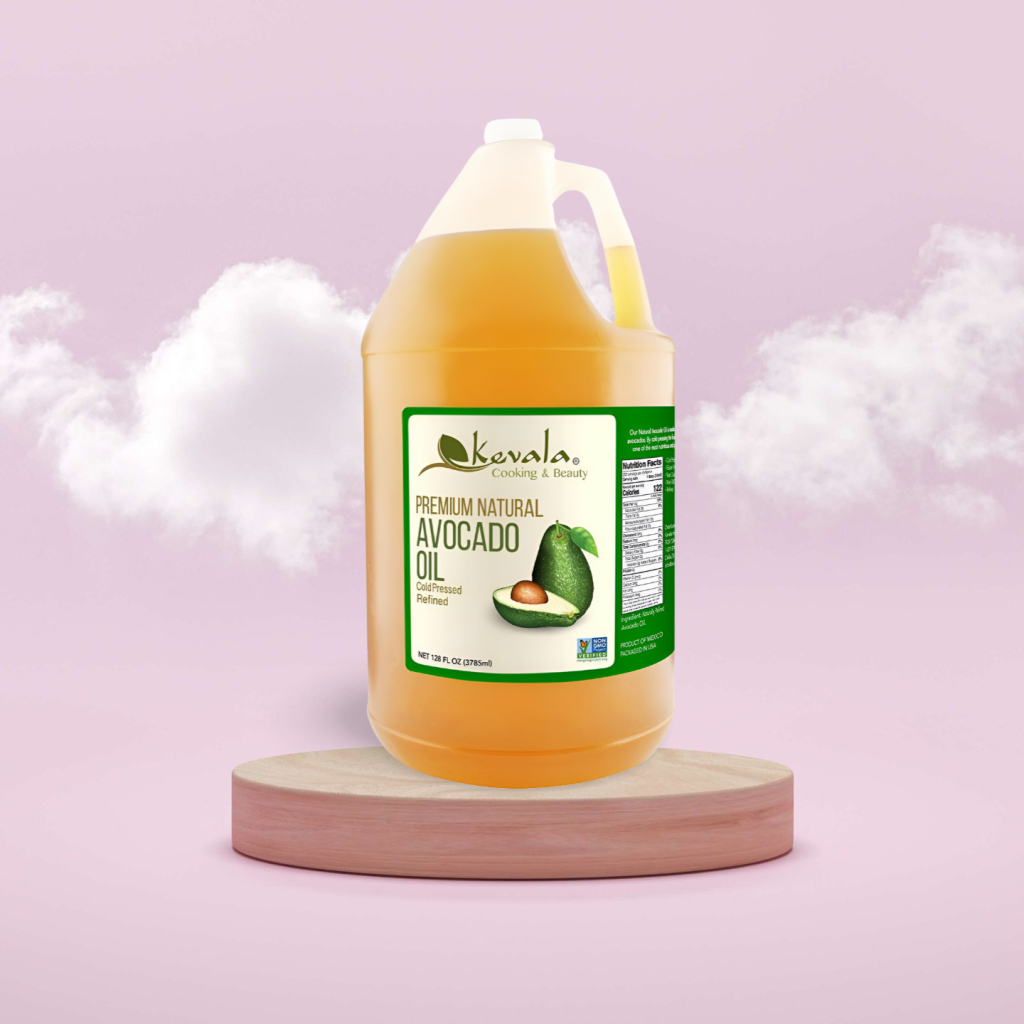
BetterBody Foods🌟
Refined and budget-friendly
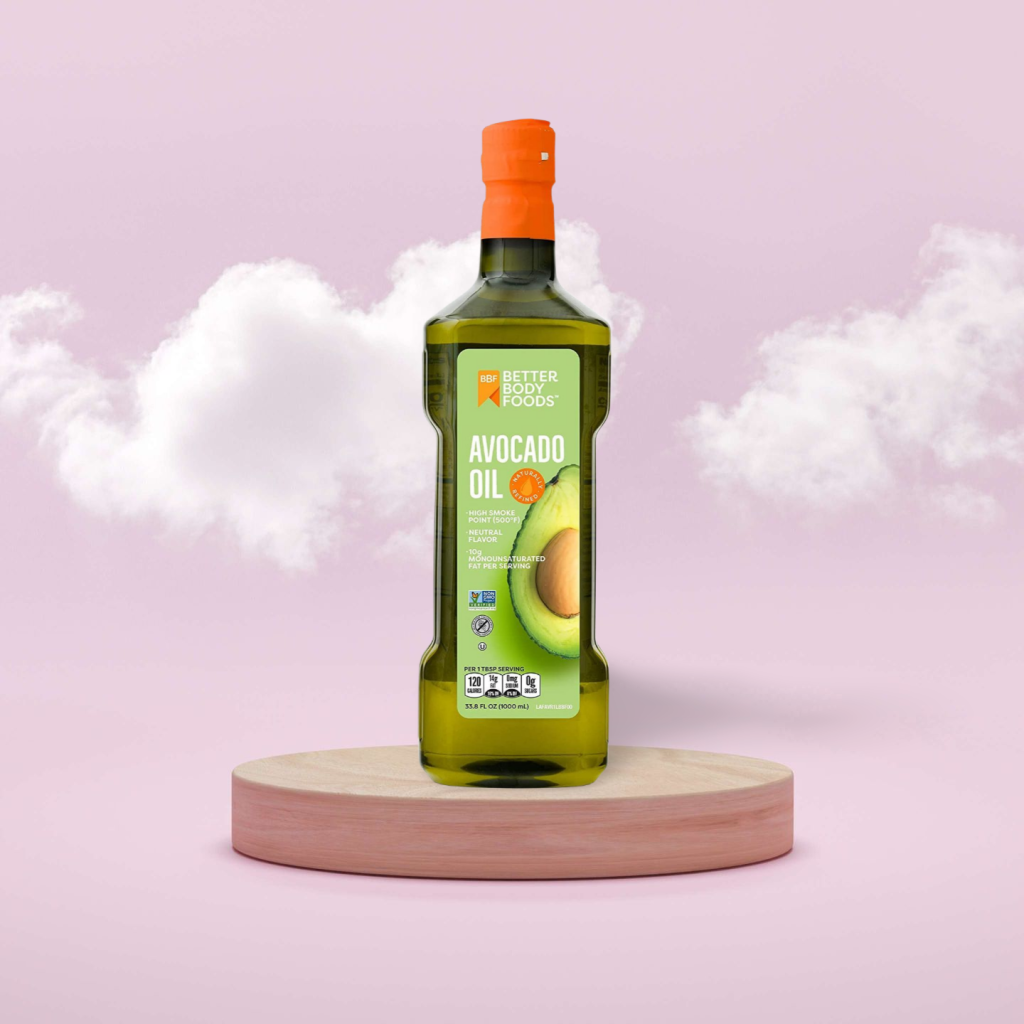
Olivado🌟
Cold-pressed and extra virgin
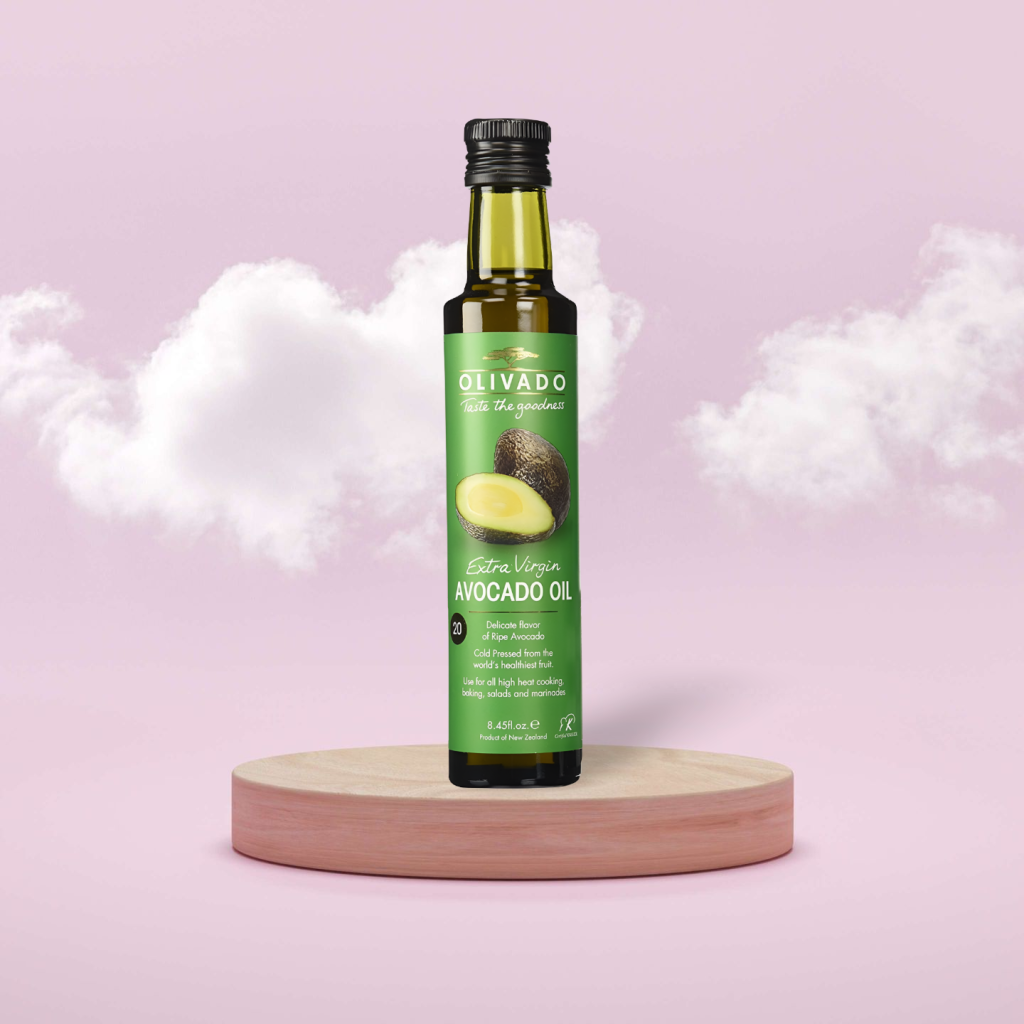
Avohass🌟
Single-origin and traceable
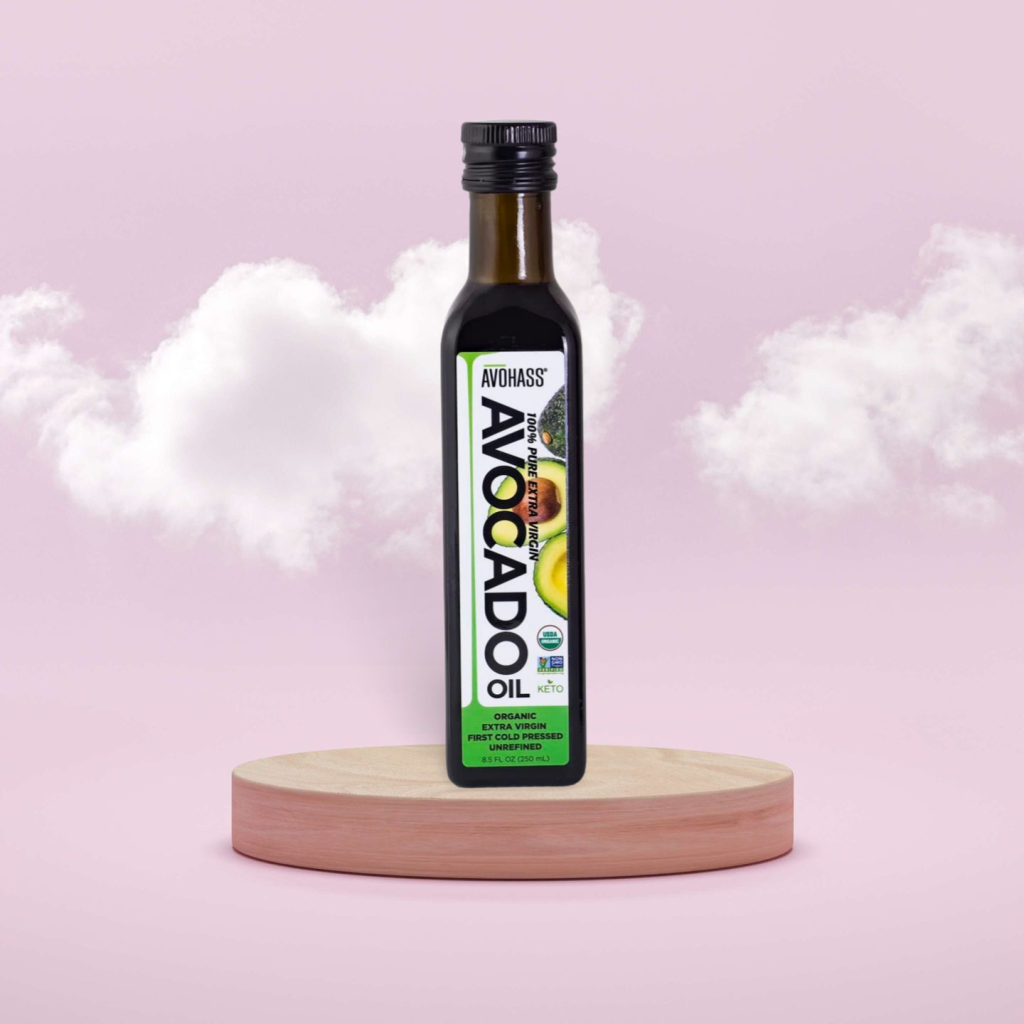
Bella Vado🌟
Artisanal and family-owned
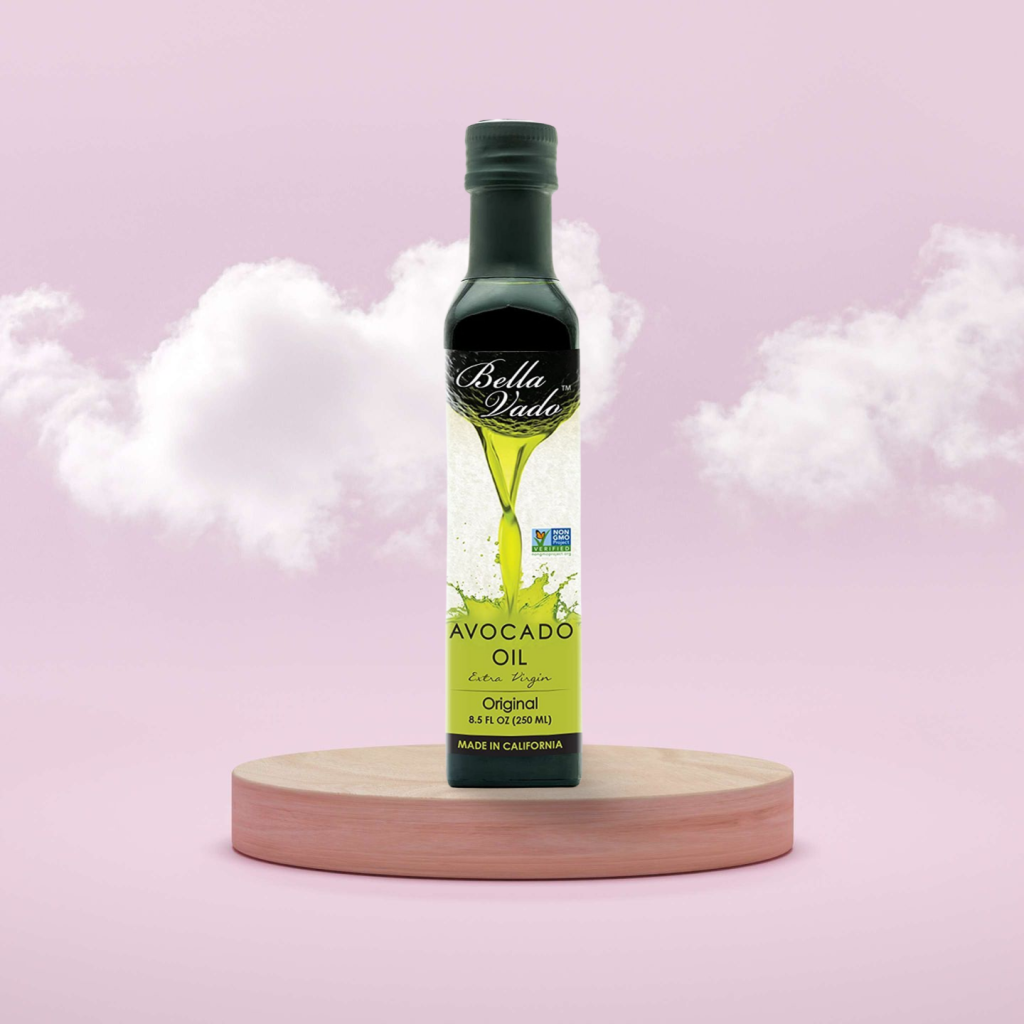
The Bottom Line
Choosing healthy oils for cooking and skincare is important for maintaining overall health and wellness. Avocado oil is a versatile and nutritious option that offers a range of health benefits. Compared to olive oil, avocado oil has the same high smoke point and a more neutral flavor, making it a great choice for high-heat cooking and baking.
If you're looking to incorporate avocado oil into your lifestyle, there are many great brands to choose from. Based on the information provided in this article, some of the top avocado oil brands include Chosen Foods, Primal Kitchen, and La Tourangelle. These brands offer unique features and benefits, such as organic and cold-pressed options, as well as varying price points and availability.
In the future, it will be important to continue researching and exploring the potential health benefits of avocado oil, as well as other healthy oils. By making informed choices about the foods and products we consume, we can take steps toward a healthier and more sustainable future.
Frequently Asked Question
What are the nutritional facts of avocado oil?
What are the health benefits of avocado oil?
Is avocado oil good for cooking?
References
Fitnature uses only high-quality sources, including peer-reviewed studies, to support the facts within our articles. Read our editorial process to learn more about how we fact-check and keep our content accurate, reliable, and trustworthy.
- Akoh, Casimir C. Food Lipids: Chemistry, Nutrition, and Biotechnology, Fourth Edition. CRC Press, 2017.
- Berasategi, Izaskun, et al. “Stability of Avocado Oil during Heating: Comparative Study to Olive Oil – PubMed.” Food Chemistry, vol. 132, no. 1, May 2012, https://doi.org/10.1016/j.foodchem.2011.11.018.
- Bhuyan, Deep Jyoti, Muhammad A. Alsherbiny, et al. “The Odyssey of Bioactive Compounds in Avocado (Persea Americana) and Their Health Benefits.” Antioxidants, vol. 8, no. 10, Sept. 2019, https://doi.org/10.3390/antiox8100426.
- Bhuyan, Deep Jyoti, Muhammad A Alsherbiny, et al. “The Odyssey of Bioactive Compounds in Avocado (Persea Americana) and Their Health Benefits.” Antioxidants (Basel, Switzerland), vol. 8, no. 10, Sept. 2019, p. 426, https://doi.org/10.3390/antiox8100426.
- Bouic, P. J., et al. “Beta-Sitosterol and Beta-Sitosterol Glucoside Stimulate Human Peripheral Blood Lymphocyte Proliferation: Implications for Their Use as an Immunomodulatory Vitamin Combination – PubMed.” International Journal of Immunopharmacology, vol. 18, no. 12, Dec. 1996, https://doi.org/10.1016/s0192-0561(97)85551-8.
- Caballero, Benjamin, et al. Encyclopedia of Food and Health: A – Che. 2016.
- Carvajal-Zarrabal, Octavio, et al. “Avocado Oil Supplementation Modifies Cardiovascular Risk Profile Markers in a Rat Model of Sucrose-Induced Metabolic Changes.” Disease Markers, vol. 2014, 2014, p. 386425, https://doi.org/10.1155/2014/386425.
- Cho, L. W. “Metabolic Syndrome – PubMed.” Singapore Medical Journal, vol. 52, no. 11, Nov. 2011.
- da-Costa, Fernanda Machado, et al. “Thermal Stability of Avocado Oil: A Comparative Study with Rice Bran and Olive Oils.” AGRIS: International Information System for the Agricultural Science and Technology, https://agris.fao.org/agris-search/search.do?recordID=CL2021A08217. Accessed 4 May 2023.
- Dabas, Deepti, et al. “Avocado (Persea Americana) Seed as a Source of Bioactive Phytochemicals – PubMed.” Current Pharmaceutical Design, vol. 19, no. 34, Jan. 2013, https://doi.org/10.2174/1381612811319340007.
- Danhof, Ivan E. “Potential Reversal of Chronological and Photo‐aging of the Skin by Topical Application of Natural Substances.” Phytotherapy Research, vol. 7, no. 7, pp. S53–56, https://doi.org/10.1002/ptr.2650070716. Accessed 4 May 2023.
- de Oliveira, Ana Paula, et al. “Effect of Semisolid Formulation of Persea Americana Mill (Avocado) Oil on Wound Healing in Rats.” Evidence-Based Complementary and Alternative Medicine : eCAM, vol. 2013, 2013, p. 472382, https://doi.org/10.1155/2013/472382.
- Dreher, Mark L., and Adrienne J. Davenport. “Hass Avocado Composition and Potential Health Effects.” Critical Reviews in Food Science and Nutrition, vol. 53, no. 7, 2013, pp. 738–50, https://doi.org/10.1080/10408398.2011.556759.
- Dubois, Virginie, et al. “Fatty Acid Profiles of 80 Vegetable Oils with Regard to Their Nutritional Potential.” European Journal of Lipid Science and Technology, vol. 109, no. 7, pp. 710–32, https://doi.org/10.1002/ejlt.200700040. Accessed 4 May 2023.
- Engler, Marguerite M., and Mary B. Engler. “Omega-3 Fatty Acids: Role in Cardiovascular Health and Disease – PubMed.” The Journal of Cardiovascular Nursing, vol. 21, no. 1, Feb. 2006, https://doi.org/10.1097/00005082-200601000-00005.
- Ghosh, A. “The Metabolic Syndrome: A Definition Dilemma.” Cardiovascular Journal of Africa, vol. 22, no. 6, 2011, pp. 295–96.
- Goyal, Ankit, et al. “Flax and Flaxseed Oil: An Ancient Medicine & Modern Functional Food.” Journal of Food Science and Technology, vol. 51, no. 9, Sept. 2014, pp. 1633–53, https://doi.org/10.1007/s13197-013-1247-9.
- Greenberger. “Medium-Chain Triglycerides.” New England Journal of Medicine, 14 Jan. 2010, https://www.nejm.org/doi/pdf/10.1056/NEJM196905082801906. Accessed 4 May 2023.
- Hamzah. “Extraction of Avocado Oil by Wet Method.” Sriwijaya University Repository, 1 Apr. 2012, https://repository.unsri.ac.id/14615/. Accessed 4 May 2023.
- Lu, Qing-Yi, et al. “Inhibition of Prostate Cancer Cell Growth by an Avocado Extract: Role of Lipid-Soluble Bioactive Substances.” The Journal of Nutritional Biochemistry, vol. 16, no. 1, Jan. 2005, pp. 23–30, https://doi.org/10.1016/j.jnutbio.2004.08.003.
- Mahmassani, Hiya A., et al. “Avocado Consumption and Risk Factors for Heart Disease: A Systematic Review and Meta-Analysis – PubMed.” The American Journal of Clinical Nutrition, vol. 107, no. 4, Apr. 2018, https://doi.org/10.1093/ajcn/nqx078.
- “Office of Dietary Supplements – Omega-3 Fatty Acids.” Health Professional Fact Sheet, https://ods.od.nih.gov/factsheets/Omega3FattyAcids-HealthProfessional/#h10. Accessed 4 May 2023.
- Rodríguez-Carpena, Javier-Germán, et al. “Avocado (Persea Americana Mill.) Phenolics, in Vitro Antioxidant and Antimicrobial Activities, and Inhibition of Lipid and Protein Oxidation in Porcine Patties – PubMed.” Journal of Agricultural and Food Chemistry, vol. 59, no. 10, May 2011, https://doi.org/10.1021/jf1048832.
- Slater, G. G., et al. “Seasonal Variation in the Composition of California Avocados – PubMed.” Journal of Agricultural and Food Chemistry, vol. 23, no. 3, June 1975, https://doi.org/10.1021/jf60199a048.
- Slater, Grant G. “Seasonal Variation in the Composition of California Avocados.” ACS Publications, 1 May 2002, https://pubs.acs.org/doi/abs/10.1021/jf60199a048. Accessed 4 May 2023.
- Swanson, Danielle, et al. “Omega-3 Fatty Acids EPA and DHA: Health Benefits throughout Life.” Advances in Nutrition (Bethesda, Md.), vol. 3, no. 1, Jan. 2012, pp. 1–7, https://doi.org/10.3945/an.111.000893.
Review date not set.
How we reviewed this article:
Latest on:





